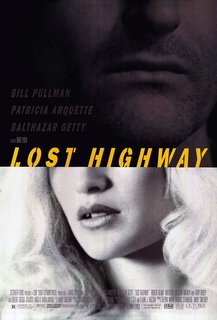 VICTIM (1961)
VICTIM (1961)
Directed by : Basil Dearden
At a time when homosexuality was still illegal in Britain, collaborators Basil Dearden (directing) and husband and wife team Janet Green and John McCormick (writing) tackled the subject head on in a sympathetic and extremely courageous way with their 1961 film
Victim. There's no hinting, suggesting or metaphorical allegory - which is what I thought was amazing about this film. I would never have expected a film from this era to directly deal with this matter, and the longer the movie went the more admiration and respect I had for these filmmakers. The laws which forbade homosexuality were known colloquially as "the blackmailer's charter", because an entire dark industry grew from the money to be made in threatening to reveal a person's sexuality. This is the direction
Victim goes in. Dirk Bogarde plays eminent, respected and successful barrister Melville Farr. When a young man he'd once fallen for, Jack Barrett (Peter McEnery) commits suicide after being arrested (he had been stealing money to pay off blackmailers), Farr embarks on a campaign to reveal who these blackmailers are and bring them to justice. He does so with the knowledge that doing so will cost him his career, despite the fact he's on the verge of becoming a Queen's Counsel. This action will also have painful consequences for his marriage to Laura (Sylvia Syms) - a woman he loves, and who knows about and struggles with Melville's sexuality.
Dirk Bogarde is superb in this movie, and moves a step closer to being included in the top tier of actors and actresses I'm a fan of. It's not just because of the sterling bravery he exhibits by taking on this role wholeheartedly - he really embodies the proud character, and allows us to clearly see the multi-dimensional emotional conflict that defines Melville Farr. In a much smaller role, character actor Norman Bird really impresses as Harold Doe, a bookseller who spurns Barrett and goes on to regret doing so, while also blaming Farr for what's happened. The performances help a movie that's a little dour and dry (in a very British way), and the villains, played by Derren Nesbitt, Hilton Edwards and David Evans, are appropriately nasty and easy to hate. The police are probably the least accurately portrayed, some being very sympathetic to Barrett, Farr and homosexuality while in real life they were persecutors and generally a gay person's greatest enemy. Homosexuality was partly decriminalised in 1967, but there were many anti-gay laws still on the books, and police in England enforced those laws even more aggressively. It took until 2003 before England had a criminal code that did not penalize a person for their sexuality.
I can't imagine how some audiences would have perceived this film when released, or how polarizing it must have been when being discussed. There were troubles with the British Board of Film Censors and America's Motion Picture Production Code, which initially denied
Victim it's seal of approval. The controversy can't overshadow how good a film this is though - it's very well shot (by veteran cinematographer Otto Heller), on location in many instances, making it lively as well as powerful and humanistic. Overall, a really interesting window through which to view a society where sensible people were ready to start asking questions about prejudice and fairness. There are many instances in it of just how life destroying this was for the people unfortunate enough to live in a society which deemed them abhorrent, and how miscreants took advantage of it. To fight it meant outing yourself, and that often meant losing your job, your friends - and before 1967 even your freedom. The maximum penalty for being convicted of having anal sex in Britain before 1967 was
life imprisonment. With that kind of danger, any film that intended to serve a humanistic purpose could also raise almighty stakes - which
Victim does. It truly was, and is, a landmark film.
Glad to catch this one - nominated for 2 BAFTA Awards - Best Actor for Dirk Bogarde and Best Screenplay for Janet Green & John McCormick.

Watchlist Count : 450 (-2)
Next : The Inquisitor (1981)
Thank you very much to whomever inspired me to watch
Victim











